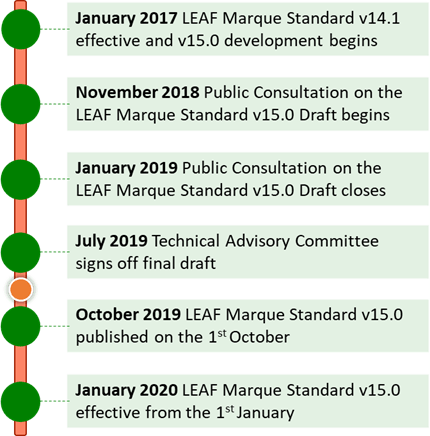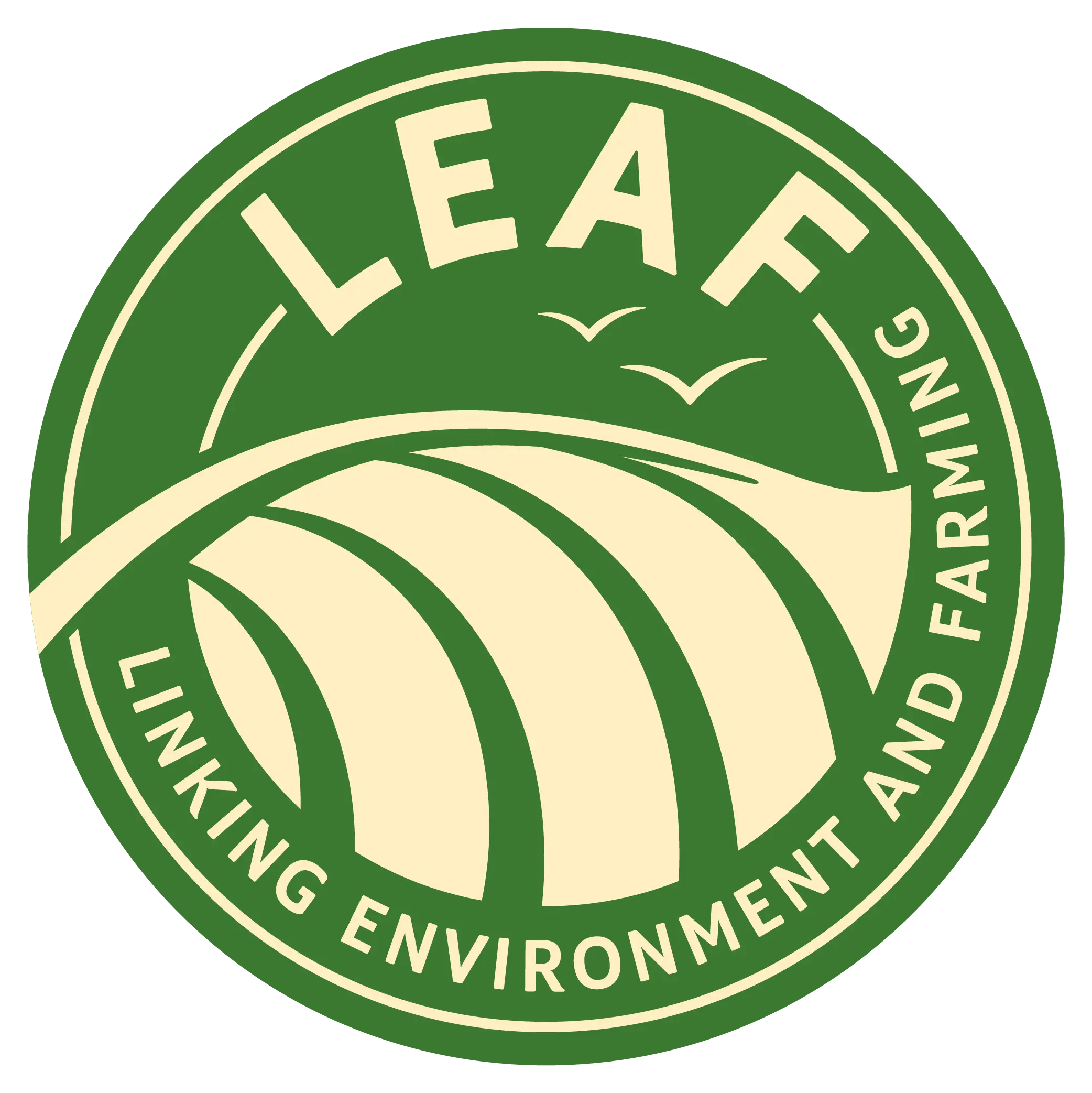LEAF Marque Standard v15.0 - Inspiring and Enabling Sustainable Farming Through LEAF Marque Certification
This autumn sees the publication of the latest version of the LEAF Marque Standard. Lucy Redmore, Technical Coordinator, outlines what has changed and how these changes support farmers in their journey to more sustainable farming.
Continual improvement is a key activity required of LEAF Marque certified businesses but it’s something we also implement here at LEAF, especially when developing the LEAF Marque Standard; we want to ensure its continued relevance and delivery of more sustainable farming through Integrated Farm Management. Part of the success of the LEAF Marque program and the momentum behind it is that people have confidence in our Standard. Industry practices and scientific understanding evolve over time, so our Standards need to evolve too.
Every few years, we revise the LEAF Marque Standard. These regular, comprehensive reviews are a great opportunity for us to tap into the skills, wisdom and insights of our members and stakeholders, scientists, NGO representatives and other sustainable agriculture experts as well as the general public. We’re very proud of the latest version of the LEAF Marque Standard and we would like to thank all those who gave us feedback and guidance throughout the revision process.
We have carried out some exciting developments in four key areas, as well as amendments to ensure relevance globally and for different production systems, consistency in language, and a greater emphasis on continual improvement and efficiency. Here’s an overview:
Animal Husbandry Jenny Clark, Assurance Manager (and LEAF’s in-house livestock expert), has developed new requirements and Control Points after extensive research, trial auditing and input from our livestock producers and the supply chain. This emphasises the importance of good animal welfare for maintaining healthy animals and productivity whilst also reducing environmental impact, strengthening what LEAF Marque can offer sustainable livestock businesses and their supply chains. Key changes include monitoring of animal performance indicators and consideration of animal feed — it’s source, composition and nutritional value.
Outcome-Based Approaches to Biodiversity LEAF Marque is the first agricultural Standard to transition towards a hybrid approach of including outcome-based requirements alongside the existing practice-based requirements. This pioneering project began with biodiversity and soil (see below) and is still ongoing. A new Recommended Control Point has been introduced into v15.0 following work with sustainability consultants NewForesight, together with a diverse group of stakeholders to conduct desk research, several interviews and a workshop. The Control Point requires monitoring of two identified outcomes; indicator species which have been locally negotiated, and the percentage of land managed for habitat, appropriate for native the biodiversity. For more information, read the summary report here.

Measuring Soil Health Soil Health has been a frequent topic of conversation in recent years and a subject that has been rising up the public and political agenda. Yet navigating the complex issue of how soil health can be measured can be difficult. LEAF Marque recognised the importance of measuring soil health and aimed to emphasise this whilst also provide direction for growers on appropriate soil health tests. A new Recommended Control Point has been introduced for v15.0 which was developed following research by LEAF student intern Sam Brook, who identified the most practical and effective soil health tests as Visual Soil Assessments and earthworm counts. You can read more about Sam’s research on his blog or research summary.
Community Engagement Another defining feature of the LEAF Marque is that it operates globally – in 2018, there were LEAF Marque certified businesses in 27 countries. The LEAF Marque Standard is plan-based which provides the flexibility needed for it to be applied globally, but we recognised that global relevance could be improved in the Community Engagement section. The core principles of this section remain the same, but the Control Points have been replaced with ones that are globally applicable, requiring that at least one activity that intends to engage the local or wider community is carried out.

Working in partnership with our members, industry partners and stakeholders throughout the food supply chain, we will continue to refine, improve and build on the LEAF Marque Standard. Our Standard is not an end in itself; it is an important driver for change. Through it we are supporting hundreds of committed and determined growers all over the globe, to achieve their sustainability goals.
The LEAF Marque Standard v15.0 will be published on the 1st October 2019 and becomes effective from the 1st January 2020. If you have any questions on the LEAF Marque Standard v15.0 or Standard Setting Procedure, please do not hesitate to get in touch at info@leafmarque.com.
We also provide a BASIS accredited two-day training course covering all aspects of Integrated Farm Management and the LEAF Marque Standard – if you would like to be updated of the next course, please contact [email protected].
